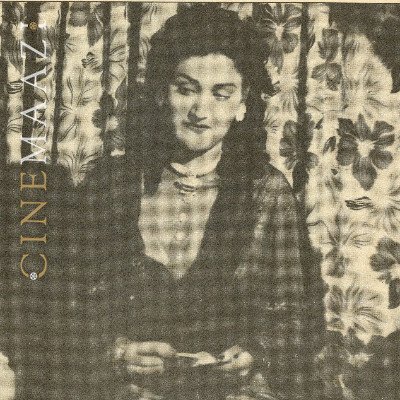This section is for paid subscribers only. Our subscription is only $3700/- for one full year.
You get unlimited access to all paid section and features on the website with this subscription.
Subscribe to read full article
This section is for paid subscribers only. Our subscription is only $37/- for one full year.
You get unlimited access to all paid section and features on the website with this subscription.
Not ready for a full subscription?
You can access this article for $2, and have it saved to your account for one year.
- Release Date31/05/1940
- FormatB-W
- LanguagePunjabi
- Run Time174 min
- Length4754.88 meters
- Gauge35 mm
- Censor Certificate NumberP-310-Lahore
Dhanna (M. Ismail) belonging to the Jat caste had the usual villager’s simplicity but along with it, he had acute shrewdness too. At one of his words, you felt his shrewdness, at the other you wondered how simple he was. These two qualities coupled with a kind heart and a considerate disposition had made his character lovable and sweet. He had two daughters Munni (Noor Jehan), aged eleven, and Rani (Anjana) aged seventeen. He treated Rani as his own daughter though, in fact, she was his adopted daughter whom he adopted from her infancy.
They were leading a happy and contented life. Everything looked fair for the future. Rani had already won the heart of a handsome young man of exemplary character. The simple life of the village combined with their artless love promised them an idyllic living. But an event occurred which threw these simple village people into the whirl of the evil influence of the city-life. Summons arrived for Rani and Dhanna requiring them to attend the court in the city. It was a great shock for Ramoo (Paul). He could not believe that his simple-beloved would be able to escape the influences of city life.
Dhanna, Rani, and Munni came over to the city. Rani’s real father Seth Sondhi Mal Kanakwala had left them a large property and ten lakh in cash. This eccentricity of fate had made these simple villagers a target of perverting influences of the city glamour and its artificial life.
At the very outset, attorney of the previous Seth with the help of a crafty woman hatched a conspiracy to get money from these simple villagers. No doubt Dhanna was a simple villager but his shrewdness proved too good for them. He saw through their artifices and exposed them thoroughly that the plot fell through. Other people, too, counted on the simplicity and simple-mindedness of this villager to empty his pockets but before Dhanna’s shrewdness, their efforts fell flat.
The evil influence of the city and its crooks were powerless in the case of Dhanna but his simple-minded daughter could not escape their power. City glamour dazzled her eyes and she fell an easy prey to a debonair who was well-versed in the art of flirtation. This debonair was the son of the same Barrister who had conspired to grip Rani’s father into his clutches. His name was Kuldip (Pran Kishan Sikand) he not only gambled, drank, and led a fast life but had also deserted his own wife. He effectively dragged this simple unsuspecting girl with city glamour and so entrapped her mind that she completely lost her head over him. She turned a deaf ear to her father’s advice and entreaties, insulted her younger sister, forgot Ramoo, and his sincere love, and threw away all the tokens of love which he had given her at the time of parting.
Kuldip gained ground over Rani and succeeded in creating a gulf between her and her father. Frequent quarrels became a usual occurrence in their house. Loving and obedient Rani became indifferent. She drifted away and away. Every effort of her father to reclaim her and make her see met with insults from Rani. He reminded her of his love, she taunted him with money he had received from her deceased father. He shed tears, she returned angry words.
This unsuspecting spoilt child went for a picnic with Kuldip. To her great surprise and his extreme discomfiture she found Kuldip’s real wife waiting for them there. She was an innocent creature and a deserted and a wronged mother and stood there with Kuldip’s infant in her lap. She did not speak but her tears delivered the message about real Kuldip to Rani. This served as an eye-opener to Rani. She suddenly remembered her father, his love, his entreaties, and his advice. She remembered Ramoo, his love, and the promise she had made him. She was completely disillusioned.
No conveyance was fast enough to carry her back home. She wanted to fly back to the bosom of her father and ask his pardon but it was too late.
.jpg)
Cast
-
Pran
Kuldip -
M Ismail
Dhanna Jat -
Ajmal
Chandu -
Noor Jehan
Munni -
Anjana
Rani -
Manjula
Vimla -
Shyama
Durga's wife
Crew
-
BannerPancholi Art Pictures, Lahore
-
Director
-
Producer
-
Music Director
-
Lyricist
-
Singer
-
Dialogues
-
Cinematography
-
Editing
-
Sound Recording/ Audiography
-
Art Director/Production Design
-
Production Controller













.jpg)



